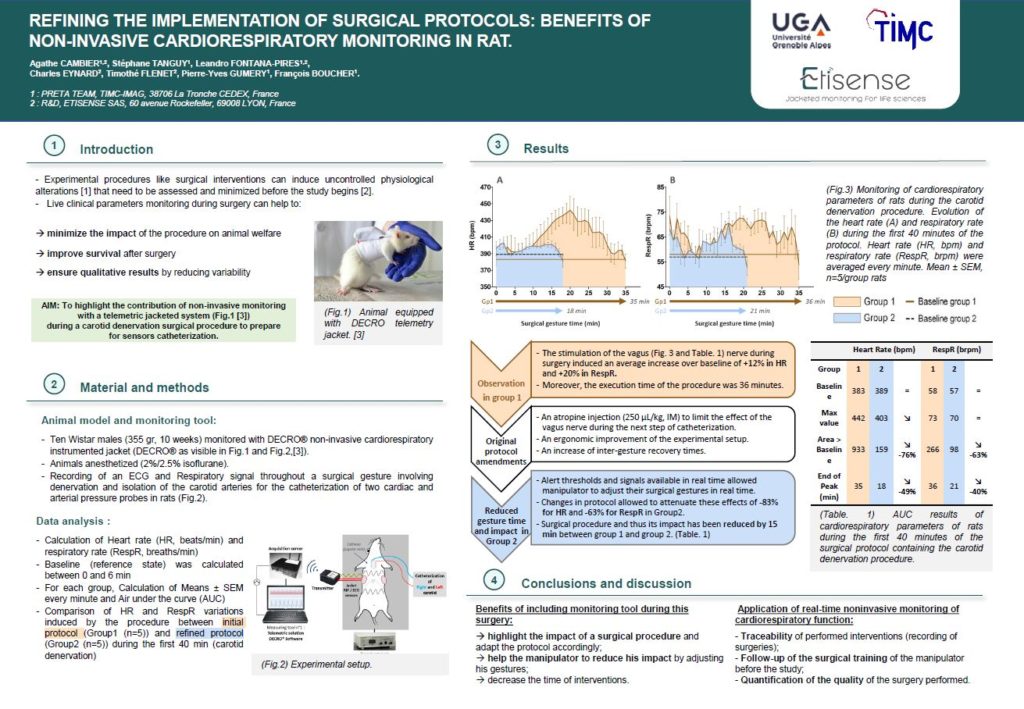This use case has been drawn from a study focused on the cardiovascular system, conducted in collaboration with the TIMC laboratory and it has been presented at the 15th FELASA congress.
Laboratory animal experimental procedures, including surgical interventions, may induce unwanted and uncontrolled physiological constant alterations. Therefore, these procedures should be evaluated and validated before the beginning of a study to ensure qualitative results and minimize the impact on animal welfare.
In the study conducted, an external monitoring jacket (DECRO) has been used to monitor heart rate (HR) and respiratory rate (RespR) during a procedure involving carotid arteries catheterization in anesthetized (2%/2.5% isoflurane) male Wistar rats (10 weeks, 355 gr). The procedure induced variations of HR and RespR were compared between five animals submitted to the initial protocol (Group1) and five animals that underwent the refined protocol (Group2).
[…]
To know more or discuss your specific case, do not hesistate to contact us here or at contact@etisense.com


